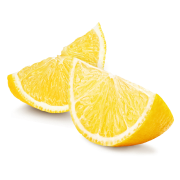
A Lighter Option
Yakult Balance is a little lighter, with fewer calories and less sugar in every little bottle.***



Increases Bacteria in the Gut

Fewer Calories & Less Sugar

Rich in Vitamin D

Supports Your Immunity
The little bottle with the blue top known as Yakult Balance is packed with 20 billion L. casei Shirota bacteria – these clever, friendly bacteria are scientifically proven to reach the gut alive and increase the bacteria in the gut.** The good news doesn’t stop there.

Yakult Balance is a little lighter, with fewer calories and less sugar in every little bottle.***
Plus, it’s rich in vitamin D to support immunity and muscle & bone health!* Make Yakult Balance part of your daily ritual, from today.


Vitamin D is a nutrient our bodies need in small amounts to work properly and stay healthy – from supporting our immune system to maintaining our bone and muscle health.* Getting enough vitamin D is essential to keep your immune system running smoothly. Bring on the sunshine!
Drinking Yakult doesn’t just add billions of these unique L. casei Shirota bacteria to the gut; it boosts the growth of other bacteria too!*** Get sipping and let the gut party begin!
What is L. casei Shirota?
Yakult Balance, fermented skimmed milk drink with L. casei Shirota bacteria and vitamin D. With sugars and sweeteners. With a refreshing lemon flavour. Ingredients: water, skimmed milk (reconstituted), sweetener: maltltol syrup, glucose-fructose syrup, thickener: polydextrose, flavourings, sweetener: steviol glycosides from Stevia, vitamin D. Contains L. casei Shirota.
Yakult contains 30 billion L. casei Shirota per 100ml when refrigerated (20 billion per bottle).
*Vitamin D contributes to the normal function of the immune system and the maintenance of normal bones and muscle function. Each bottle of Yakult Balance accounts for 30% of the EU reference intake for vitamin D. Enjoy as part of a healthy balanced diet and lifestyle. Recommended consumption: 1 bottle per day.
**Yakult’s bacteria L. casei Shirota, increase both the lactobacilli and bifidobacteria in the gut.
*** Yakult Balance contains 68% less sugar and 38% fewer calories than Yakult Original.

Fat Free

Suitable for Vegetarians

Gluten Free
We suggest one bottle a day, however it's perfectly ok to drink more than one a day. Many people have theirs at breakfast time as part of their daily routine, but it's really up to you!
Yakult Balance contains 20 billion of our unique bacteria and is enriched with vitamins D! Vitamin D supports the maintenance of normal bones and muscle function, as well as the normal function of the immune system.
You can find Yakult (usually in the yoghurt aisle) in all major supermarkets. In the UK, try your local Tesco, Asda, Sainsbury’s, Morrisons, Waitrose, Ocado or local independent supermarket. You can also have Yakult delivered straight to your door by your milkman! Ireland: Yakult is available nationwide in Tesco, Dunnes, and Super Valu, The Joyce Shops, Galway and Nolans Vernon Avenue in Dublin.
No, Yakult contains skimmed milk and therefore is not suitable for those with milk allergies or intolorances.
Yes, Yakult Original, Yakult Balance and Yakult Plus are all gluten-free.
Yakult contains very little lactose (approximately 1g per bottle), so may be suitable for some lactose-intolerant individuals. You should ask your GP or healthcare professional if you have any concerns.
Yakult Balance contains: water, skimmed milk (reconstituted), sweetener: maltitol syrup, glucose-fructose syrup, thickener: polydextrose, flavourings, sweetener: steviol glycosides, vitamin D and L. casei Shirota. For nutritional information click here
Yakult Original doesn't contain any sweeteners. Yakult Balance and Yakult Plus Peach contains maltitol syrup and steviol glycosides, extracted from the leaves of the stevia plant. The flavours used in Yakult Original and Yakult Balance are citrus and vanilla. Yakult Balance contains a yoghurt flavouring and Yakult Plus Peach a peach flavouring.
No. Yakult's colouring comes from the natural caramelisation of milk which occurs when it's heated during the production process.